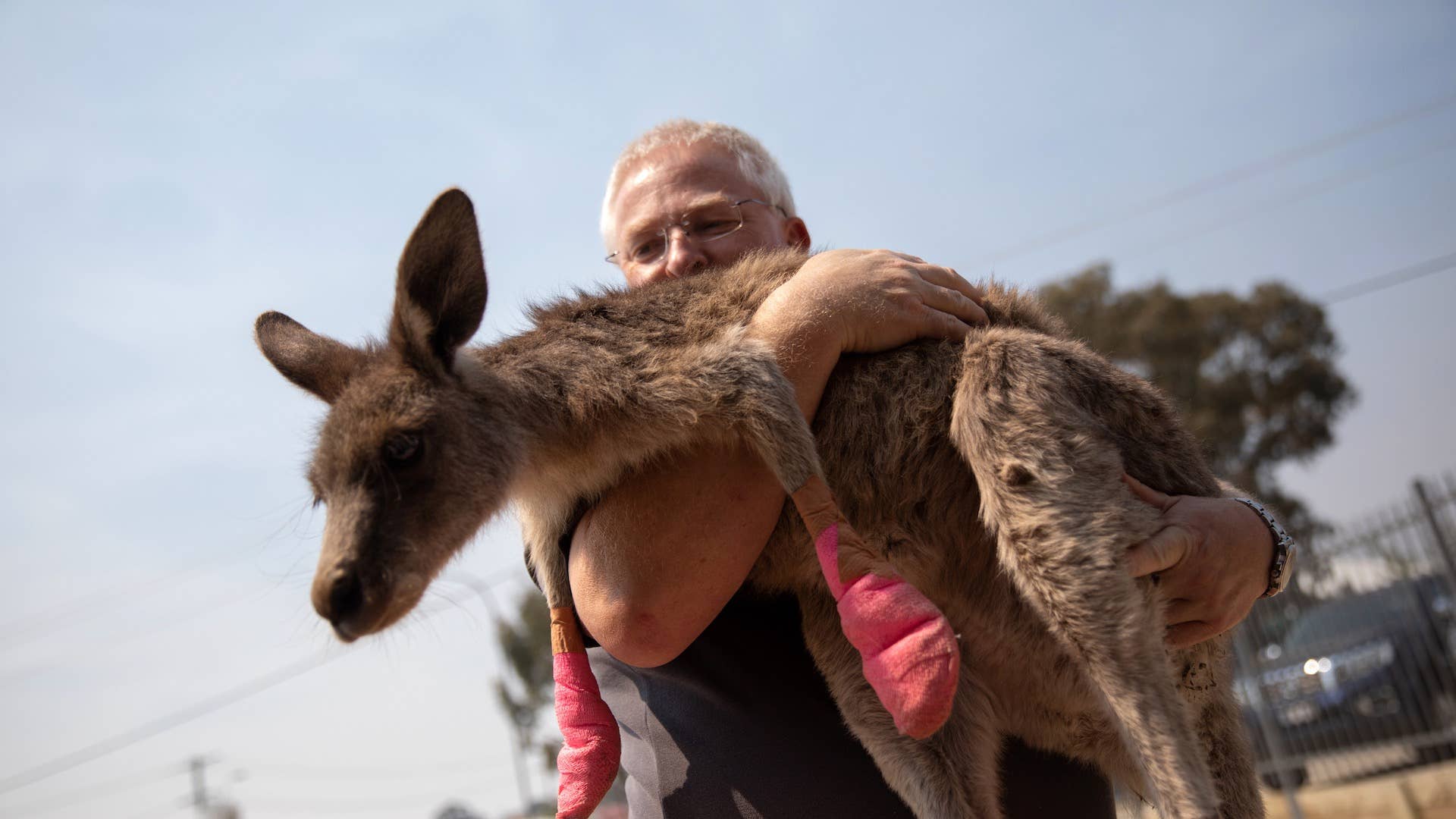
The Australian government has identified more than 100 animal species whose futures have been threatened by months of devastating wildfires.
An expert panel made up of conservationists, ecologists, and scientists helped compile the list that was released Tuesday, about six months after the unprecedented bushfire season began. The report names the 113 species that require "urgent attention" to recover from the blazes, which have wreaked havoc on their natural habitats and numbers. The provisional list includes 13 species of bird, 19 mammals, 20 reptiles, 17 frogs, 17 freshwater fish, and various koala species. Though experts do not believe the fires killed off entire species, they warn that some animals—particularly those that were already endangered—are at "imminent risk of extinction."
"The fires have covered an unusually large spatial extent, and in many areas they have burnt with unusually high intensity. Some species were considered threatened before the fires, and the fires have now likely brought them even closer to extinction," the report read. "Many other fire-affected animal species were considered secure and not threatened before the fires, but have now lost much of their habitat and may be imperiled."
So, what can the government do now? The report lays out two recommendations: conducting on-ground surveys to determine how many animals were lost in the fire (experts now believe more than 1 billion were killed in the blazes); and protection of wildlife areas that were not burned by the fires.
"To support recovery of these species, conservation action will be needed for many species, at many sites, and such informed management will be carried out by a wide range of government agencies, non-government conservation organisations, university researchers, community groups and the public," the report states. "However, some species are in need of more urgent help than others."
Plant species and other invertebrates will likely be added to the list.

